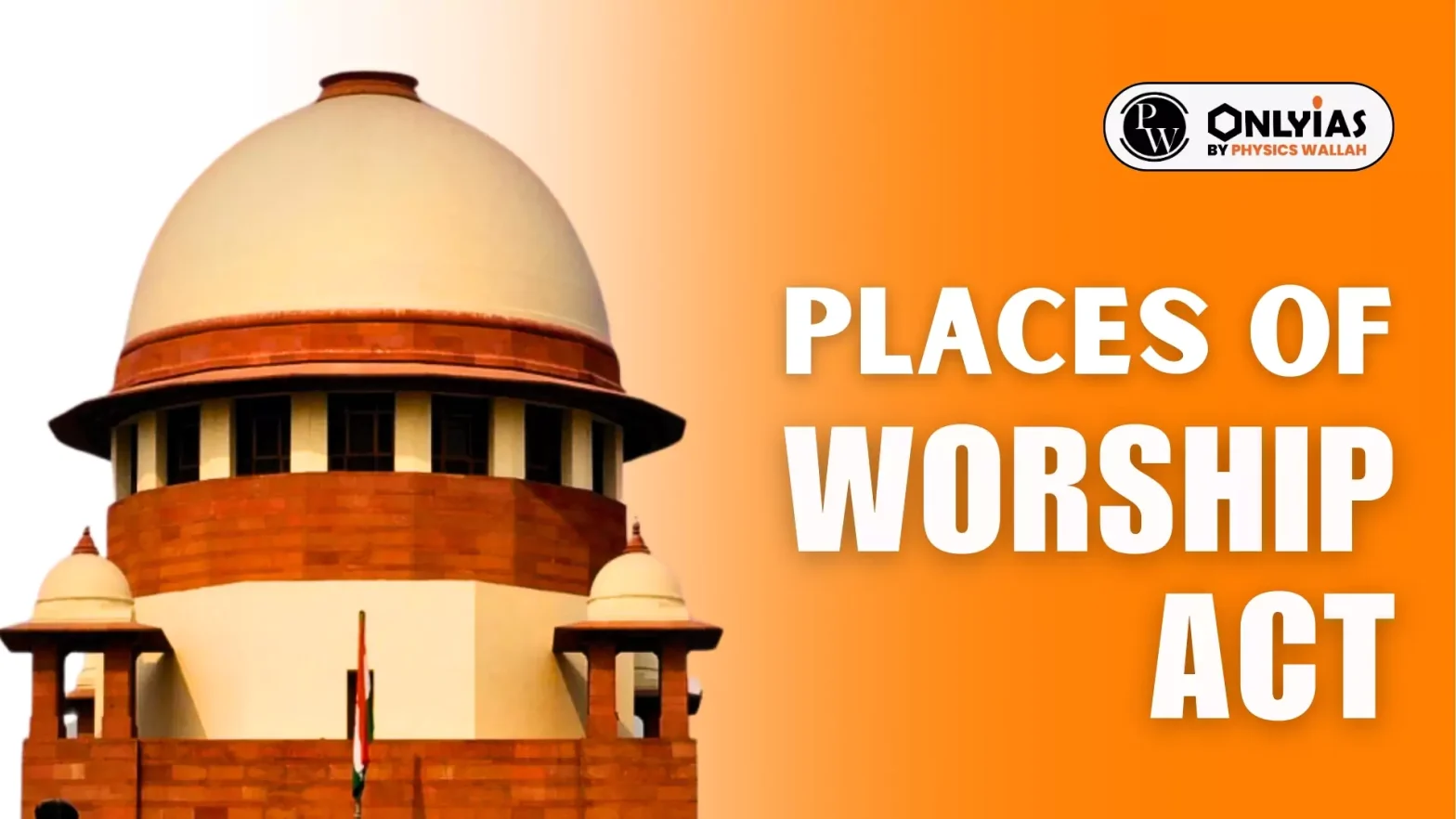Places of Worship (Special Provisions) Act, 1991 sought to maintain and protect the religious places of worship. Get more details on the Places of Worship (Special Provisions) Act, 1991 here.

The Places of Worship (Special Provisions) Act, 1991, is a landmark legislation enacted by the Indian Parliament to maintain the religious character of places of worship as it existed on August 15, 1947. This law prohibits the conversion of any place of worship and aims to uphold the nation’s secular fabric by promoting harmony and preventing disputes over historical religious sites.
The Places of Worship Act, of 1991, preserves the status quo of religious sites as of August 15, 1947, barring any changes in their nature. It applies to all religious places of worship across India, except the Ram Janmabhoomi-Babri Masjid dispute, which was explicitly excluded from its purview.
The Places of Worship (Special Provisions) Act, 1991, prohibits the conversion of any place of worship and ensures the maintenance of its religious character as it existed on August 15, 1947.
The Act extends to the whole of India except Jammu and Kashmir and came into force on July 11, 1991.
The Places of Worship Act, 1991, was introduced to address communal tensions arising from disputes over religious sites.
The Places of Worship Act, 1991, is a cornerstone in India’s legal framework to preserve its secular ethos and maintain peace among diverse religious communities. Here are the key provisions of the Places of Worship Act:
| Section | Provision |
| Section 3 | Prohibits the conversion of a place of worship from one religious character to another. |
| Section 4(1) | Declares that the religious character of a place of worship as it existed on August 15, 1947, shall remain the same. |
| Section 4(2) | Bars any legal proceedings regarding the conversion of places of worship that existed before the commencement of the Act. |
| Section 5 | Excludes the Ram Janmabhoomi-Babri Masjid dispute from the provisions of the Act. |
| Section 6 | Prescribes a punishment of up to three years imprisonment and fines for contravening Section 3. |
| Section 7 | States that the Act overrides all other inconsistent laws or legal instruments. |
The Places of Worship (Special Provisions) Act, 1991, aims to preserve the religious character of places of worship as they existed on August 15, 1947, prohibiting conversions. However, the Act includes certain exemptions to address specific historical, legal, and practical concerns. These exemptions ensure the Act does not interfere with already settled matters or specific legal provisions for historical or archaeological monuments.
The Act was introduced to address communal tensions and conflicts over historical religious sites in India. It aimed to prevent the exploitation of religious sentiments for political or social unrest. The law provides a legal framework to discourage the politicization of disputes over places of worship and foster national unity.
The Places of Worship (Special Provisions) Act, 1991, has recently been a subject of controversy and debate. Its application has been questioned in light of ongoing legal disputes regarding the religious character of certain historical sites. The Supreme Court’s recent rulings and political commentary have further fueled discussions surrounding the Act. Here are the key reasons for the Act Being in the News:
Ready to boost your UPSC 2025 preparation? Join PW’s UPSC online courses today!
UPSC Exam 2025 Related Articles
UPSC Prelims 2025 Exam
UPSC Notification 2025
UPSC Preparation 2025
UPSC Eligibility 2025
UPSC Exam Pattern
UPSC Syllabus
It is a law that preserves the religious character of places of worship as it existed on August 15, 1947, prohibiting any changes.
It was enacted to prevent communal disputes over religious sites and uphold secularism.
The Act excludes the Ram Janmabhoomi-Babri Masjid dispute, allowing it to be resolved under separate legal proceedings.
Violators can face up to three years of imprisonment, fines, or both.
Yes, it applies to all religious places of worship in India, barring exceptions mentioned in the Act.
<div class="new-fform">
</div>